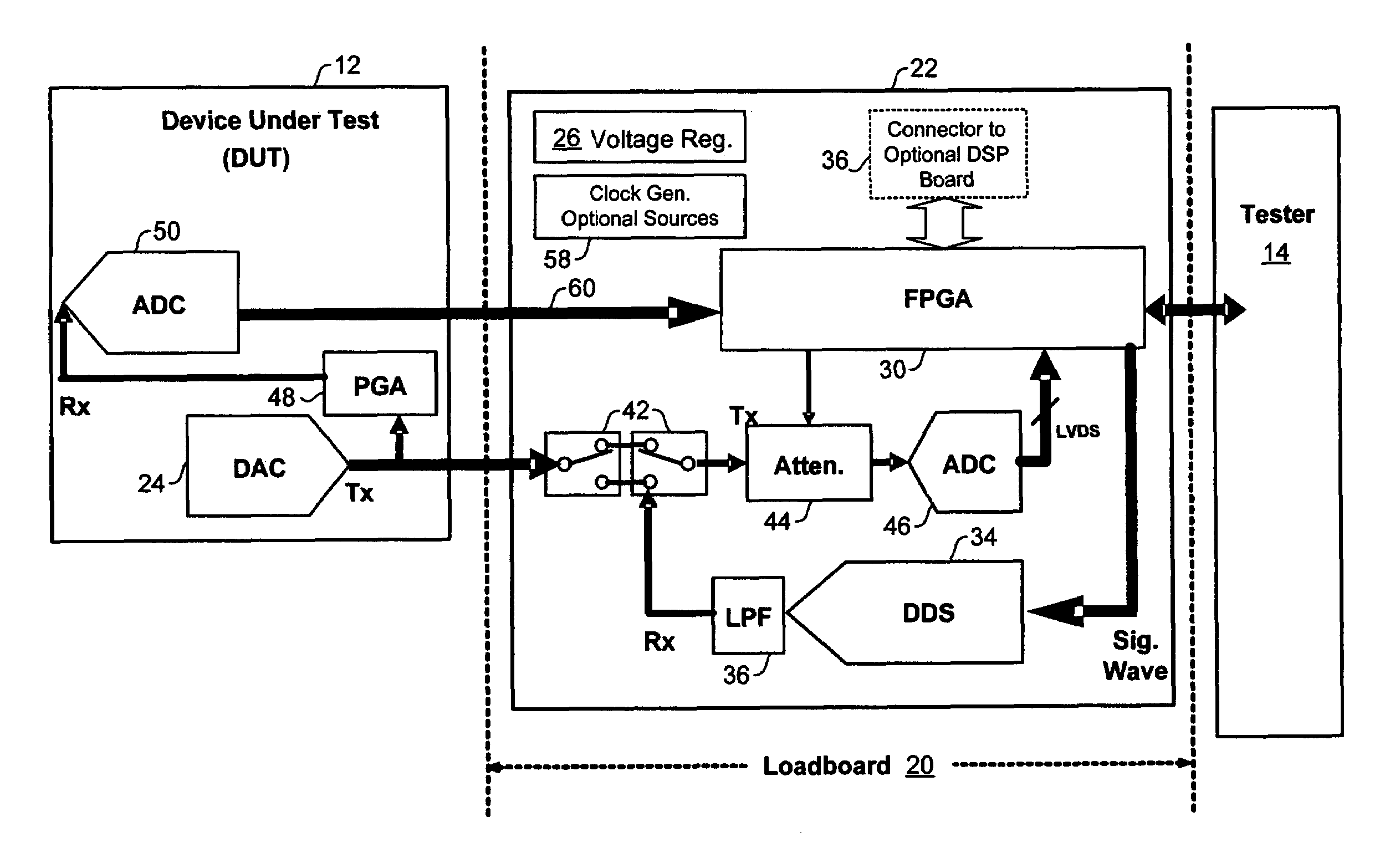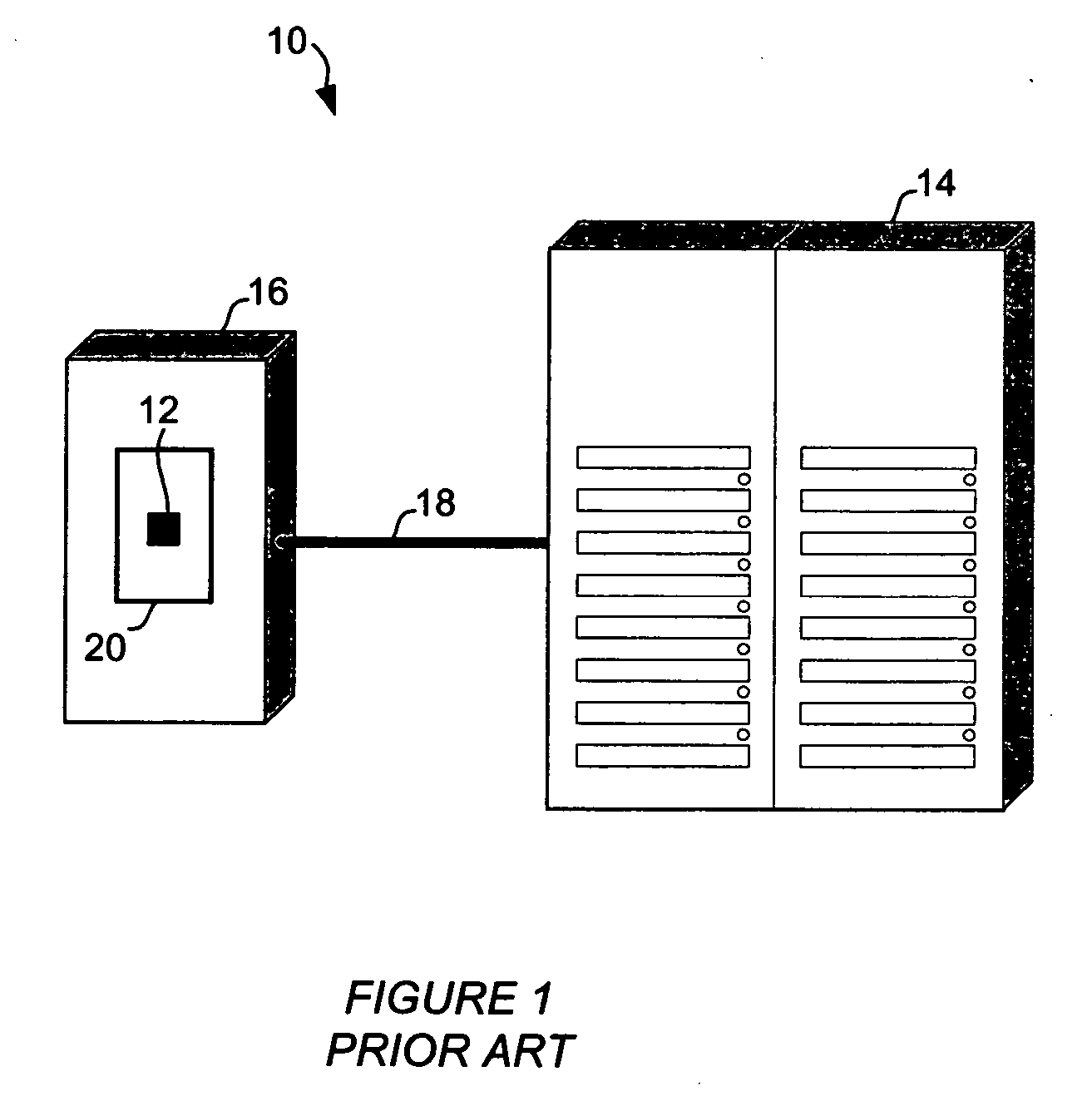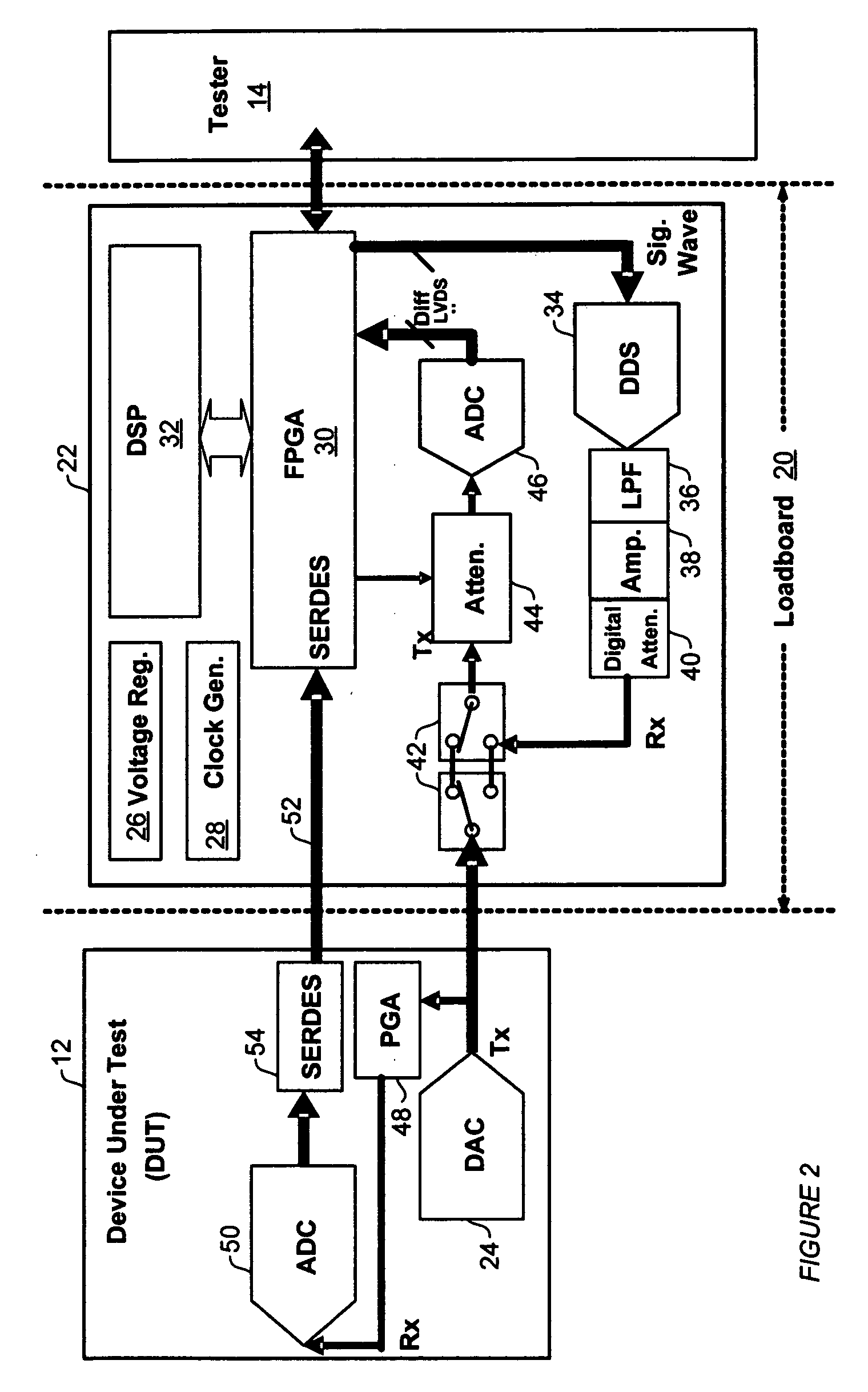Analog built-in self-test module
a built-in, self-testing technology, applied in the direction of individual semiconductor device testing, error detection/correction, instruments, etc., can solve the problems of inability to purchase, inability to test devices, and the limitations of speed and performance of most testers, so as to improve testing capacity, fast analog final test and analog characterization, the effect of improving the flexibility of component specifications
- Summary
- Abstract
- Description
- Claims
- Application Information
AI Technical Summary
Benefits of technology
Problems solved by technology
Method used
Image
Examples
Embodiment Construction
[0030]The preferred exemplary embodiment of the present invention includes an external analog built-in self-test (BIST)module for a test interface board, such as a load board on a test head, for testing devices such as integrated processors (IC). Analog BIST is from perspective of the test board or Tester and not the device under test. Built in self test, which is called a BIST is usually a reference for something that is internal to the DUT. But for this application, when I am building a test board, I mean that it is a BIST on the board and the board is doing the work instead of the tester. So from the tester point of view, it is a BIST on the load board, which is called the test board or the load board for production.
[0031]FIG. 2 illustrates a block diagram of a preferred embodiment of an analog BIST module 22 and operative connections and divisions between the preferred module 22, a device under test (DUT) 12, and a tester 14 of a system for testing IC devices. The diagram shows ...
PUM
 Login to View More
Login to View More Abstract
Description
Claims
Application Information
 Login to View More
Login to View More - R&D
- Intellectual Property
- Life Sciences
- Materials
- Tech Scout
- Unparalleled Data Quality
- Higher Quality Content
- 60% Fewer Hallucinations
Browse by: Latest US Patents, China's latest patents, Technical Efficacy Thesaurus, Application Domain, Technology Topic, Popular Technical Reports.
© 2025 PatSnap. All rights reserved.Legal|Privacy policy|Modern Slavery Act Transparency Statement|Sitemap|About US| Contact US: help@patsnap.com



